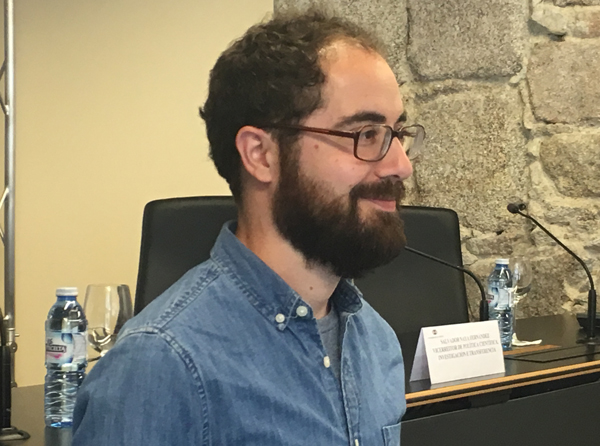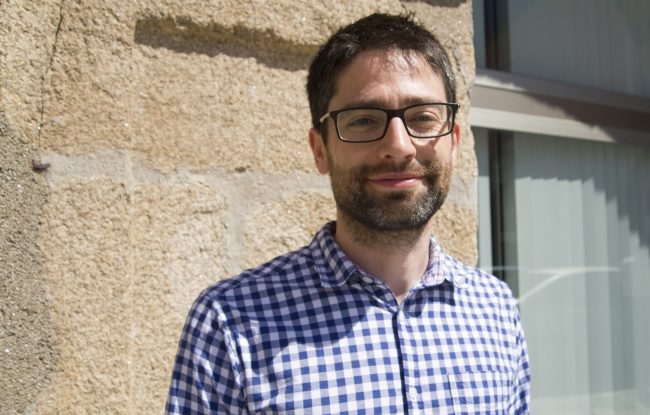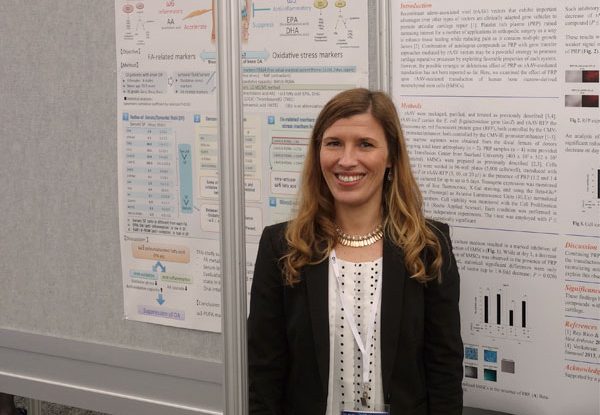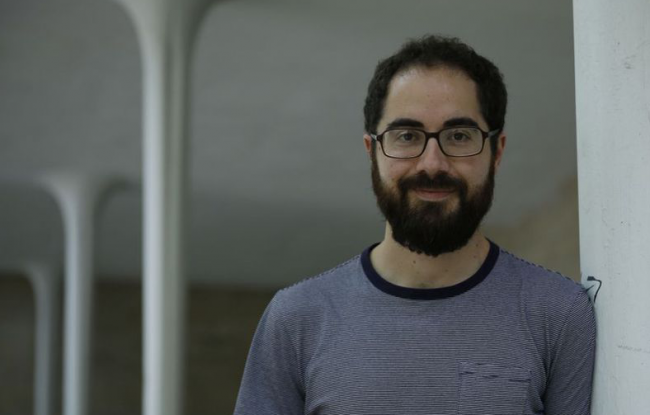Seville native, José Antonio Cortés, has an undergraduate degree in Environmental Sciences and a doctorate in Social Anthropology from Pablo de Olavide University.
Much of his training and work has been carried out abroad, at the University of Kent (2008-2009), University College London (2012-2013) and the National University of Ireland (2013-2014). He has also worked as a postdoctoral researcher at the University of Manchester (2014-2015) and at the University of Sheffield (2015-2016) in the UK thanks to a Marie Curie Postdoctoral Research Fellowship.
José Antonio Cortés, who is just back from a research stay at the Institute of Heritage Sciences of Spanish National Research Council (Known in Spanish as CSIC), has been selected in the first call of the UDC-Inditex InTalent programme alongside Elena Pazos. A total of 122 requests from more than 21 different countries were submitted to the call.
We had a chat with José Antonio Cortés and spoke to him about what it means to be one of the 2 excellent researchers selected in the first call of the InTalent Programme, and he explained to us the line of research he will be working on in the next two years of the programme.
1. At what stage of your research career does the InTalent Programme arrive? How do you think it will influence your future as a researcher?
The InTalent programme arrives at a delicate moment in my research career: my return from abroad. That’s why it is so important. After finishing a doctorate, you are expected to go abroad to gain postdoctoral experience in different foreign institutions. It is a time in which you extend your networks, you learn different ways of working and you are exposed to other perspectives, theoretical viewpoints and new ideas. However, it is also a somewhat uncertain period, because once you go to another country it is difficult to know when and how you will come back (or even if you will come back!). That is why the InTalent programme is so valuable: it gives you the opportunity to restart projects in this country, to renew contact with the networks established during your postdoctoral training, to apply what you have learned abroad to strengthen research here and make it more cutting-edge. It is a project aimed at supporting the international projection you have begun abroad, facilitating access to international project calls such as the European Research Council grants (ERC). With the competition that exists nowadays to access academic and research posts this help has become essential. For me, InTalent is a unique opportunity to get the experience necessary to gain a more stable research post.
2. Much of your training has been carried out abroad, but you are now undertaking your research career in Spain. Why did you come back here, and what made you choose Galicia?
The 2016 InTalent call caught me by surprise. I was on a research stay in the Institute of Heritage Sciences of CSIC in Santiago de Compostela, working on the National R&D plan to which I had been linked since 2015, when news of the call reached me. At the same time, I was working on a small project about social movements and the environment financed by the British Academy that I had decided to carry out in Galicia during my stay here. These experiences made me realise two things. First of all, in Galicia there is a lot of knowledge in the field of Anthropology and Social Sciences in general, and also many opportunities for growth. In that sense, the UDC is paradigmatic and not only offers these opportunities, but also total freedom to develop them. Secondly, Galicia is a very interesting place to carry out social research with regard to the environment, due to the tensions that exist in this area and the need for new studies that help to understand them. So therefore, I didn’t think twice about it and applied to the InTalent call.
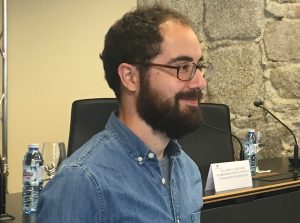
José Antonio Cortés Vázquez, during the presentation of the researchers InTalent 2016.
3. Speak to us about the research project that you will be developing in the next few years at the UDC. What do you hope to achieve from your research?
The project I am going to carry out is focused on the transformations that have taken and are taking place in rural areas due to the implantation of conservation policies, the most clear example of which is in natural protected areas. This relationship for the most part has been tense. The majority of problems are related to the type of management that is set out for these areas. There are directly related topics, such as, the ability to participate in key decisions or the way of distributing the expenses and profits associated with declaring a natural area among inhabitants. The complexity of these issues, which must be solved if the sustainable use of natural resources is to have a future, requires detailed social analysis and knowledge and understanding of the relationship inhabitants maintain with the environment that surrounds them. From there we must then explore fairer ways of managing them.
4.Your operations base is located at the Faculty of Sociology at the UDC, however, you will be carrying out your research on the ground, specifically in Os Miñarzos marine reserve (Carnota) and in the Fragas do Eume park. As a native of Seville, why have you chosen Galicia as the focus for your research project?
Research about conservation and conflicts from an anthropological point of view have been widely developed in other autonomous regions such as Andalusia, the Canary Islands, and Catalonia. However, in Galicia this field has a lot of scope for development, although there are a number of fine examples which have already been carried out (including here at the Faculty of Sociology at the UDC). On the other hand, I try to keep the commitment to carrying out research which has local repercussions. When I was preparing my application to the InTalent call I thought that, if my office was going to be at the UDC, there would be no better place than Galicia to carry out my research and in this way, I could give something back to the people and the area which would be employing me.
InTalent it is a programme aimed at supporting the international projection you have begun abroad, facilitating access to international project calls such as the European Research Council grants (ERC).


